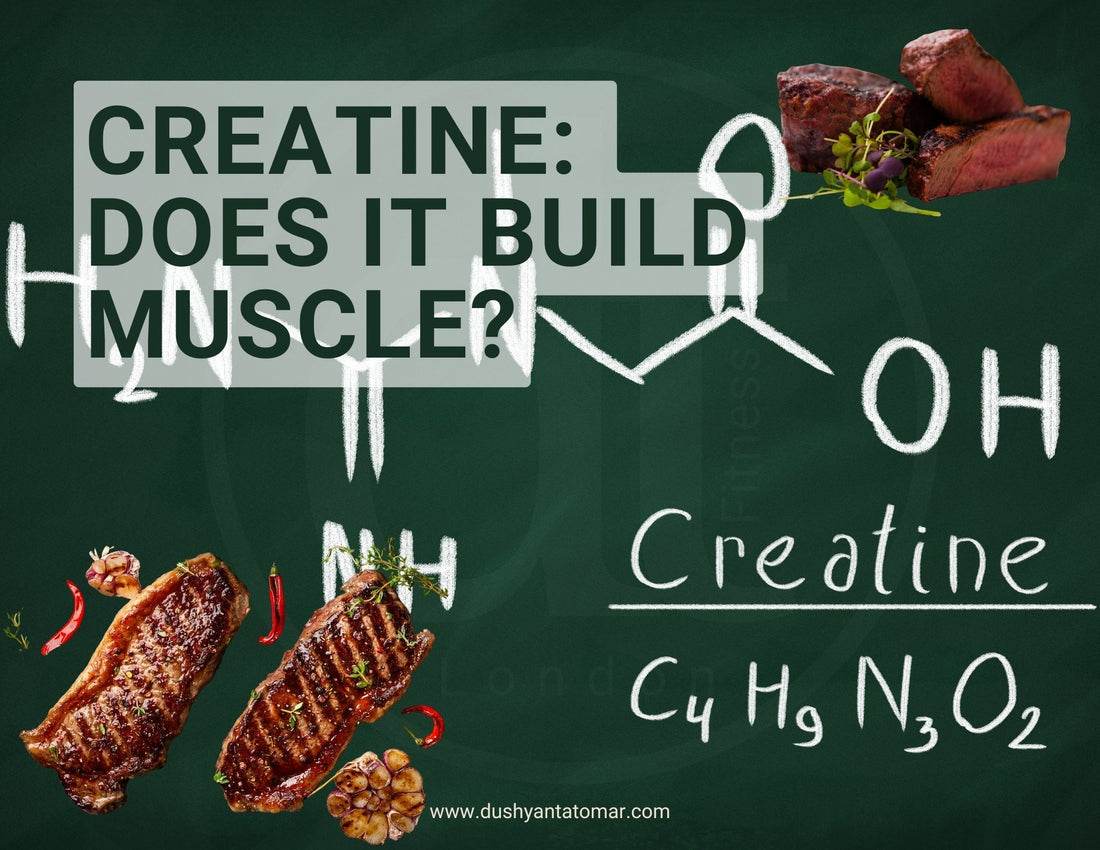Creatine is one of the most researched and recommended supplements in the fitness world - yet it remains misunderstood by many. From gym-goers fearing water retention to athletes questioning its safety, the myths around creatine can be overwhelming. In this blog, we’ll break down the facts: what creatine does, how to use it, who benefits from it, and why it’s a staple for anyone serious about performance and results.
What is Creatine?
Creatine is a compound made in the body from amino acids—arginine, glycine, and methionine. About 95% of it is stored in skeletal muscle, where it supports the regeneration of adenosine triphosphate (ATP), the body's primary energy molecule. This makes creatine especially valuable during high-intensity, short-duration exercises like lifting weights or sprinting.
Can You Get Creatine From Food?
Yes; red meat and fish are natural sources. But to match the recommended 5g dose from supplementation, you’d need to eat over a kilogram of meat daily. Vegetarians and vegans, who typically have lower baseline creatine levels, may benefit even more from supplementation.
How Does Supplementation Work?
Creatine supplements are used to saturate muscle stores. Once full, excess creatine is converted into creatinine and excreted through urine. This is why most users begin with a loading phase (20g/day for 5–7 days), followed by a maintenance dose (3–5g/day)
Does Creatine Cause Water Retention?
Yes - but it’s intracellular water retention, which means it draws water into muscle cells. This can improve muscle fullness, function, and signaling. It is not the same as subcutaneous bloating.
Is Creatine Safe?
Multiple long-term studies have shown no harmful effects on kidney or liver function in healthy individuals. Concerns about kidney health arose due to elevated creatinine levels, but this is a natural byproduct of creatine breakdown. Always consult a healthcare provider if you have existing conditions.
Does Creatine Build Muscle?
Creatine enhances training capacity - allowing users to lift more weight, complete more reps, and recover faster. Over time, this translates into greater strength and muscle growth. A meta-analysis found creatine users gained on average 1.4kg more lean mass compared to non-users.
Cognitive and Aging Benefits
Beyond physical performance, creatine is now being studied for its role in cognitive function, especially in aging populations and those under mental stress. Preliminary studies suggest it may help with memory, fatigue resistance, and neuroprotection
How to Take Creatine?
You can follow a loading protocol—20g/day for 5–7 days, then drop to a maintenance dose of 3–5g/day. Or you can skip the loading and take 3–5g daily, reaching saturation within 3–4 weeks. Take it consistently, even on rest days, and it can be mixed into water or shakes.
Should Women Take Creatine?
Absolutely. Women can benefit just as much as men from creatine, especially in terms of strength, recovery, and even hormonal balance. The misconception that it’s a male-only supplement is rooted in marketing, not science.
Conclusion
Creatine is safe, affordable, effective, and backed by decades of scientific research. It’s a no-brainer for anyone engaged in regular training, whether for muscle building, athletic performance, or cognitive health. As always, consistency and proper dosage are key. When used correctly, creatine can help you lift more, train harder, and perform better, in both body and mind.
📚 References
- Kreider, R. B., Kalman, D. S., Antonio, J., Ziegenfuss, T. N., Wildman, R., Collins, R., & Lopez, H. L. (2017). International Society of Sports Nutrition position stand: Safety and efficacy of creatine supplementation in exercise, sport, and medicine. Journal of the International Society of Sports Nutrition, 14(1), 18. https://doi.org/10.1186/s12970-017-0173-z
- Gualano, B., Roschel, H., Lancha, A. H., Brightbill, C. E., & Rawson, E. S. (2012). In sickness and in health: The widespread application of creatine supplementation. Amino Acids, 43, 519–529. https://doi.org/10.1007/s00726-011-1132-7
- Persky, A. M., & Brazeau, G. A. (2001). Clinical pharmacology of the dietary supplement creatine monohydrate. Pharmaceutical Research, 18(11), 1573–1579. https://doi.org/10.1007/s11095-003-2041-1
- Forbes, S. C., Candow, D. G., Ostojic, S. M., Roberts, M. D., & Chilibeck, P. D. (2021). Common questions and misconceptions about creatine supplementation: What does the scientific evidence really show? Nutrients, 13(8), 2799. https://doi.org/10.3390/nu13082799
-
Poortmans, J. R., & Francaux, M. (1999). Long-term oral creatine supplementation does not impair renal function in healthy athletes. Medicine & Science in Sports & Exercise, 31(8), 1108–1110. https://doi.org/10.1097/00005768-199908000-00011
- Chilibeck, P. D., Kaviani, M., Candow, D. G., & Zello, G. A. (2017). Effect of creatine supplementation during resistance training on lean tissue mass and muscular strength in older adults: A meta-analysis. Open Access Journal of Sports Medicine, 8, 213–226. https://doi.org/10.2147/OAJSM.S123529
- Rae, C., Digney, A. L., McEwan, S. R., & Bates, T. C. (2003). Oral creatine monohydrate supplementation improves brain performance: A double–blind, placebo–controlled, cross–over trial. Psychopharmacology, 167(3), 322–329. https://doi.org/10.1002/hup.398


